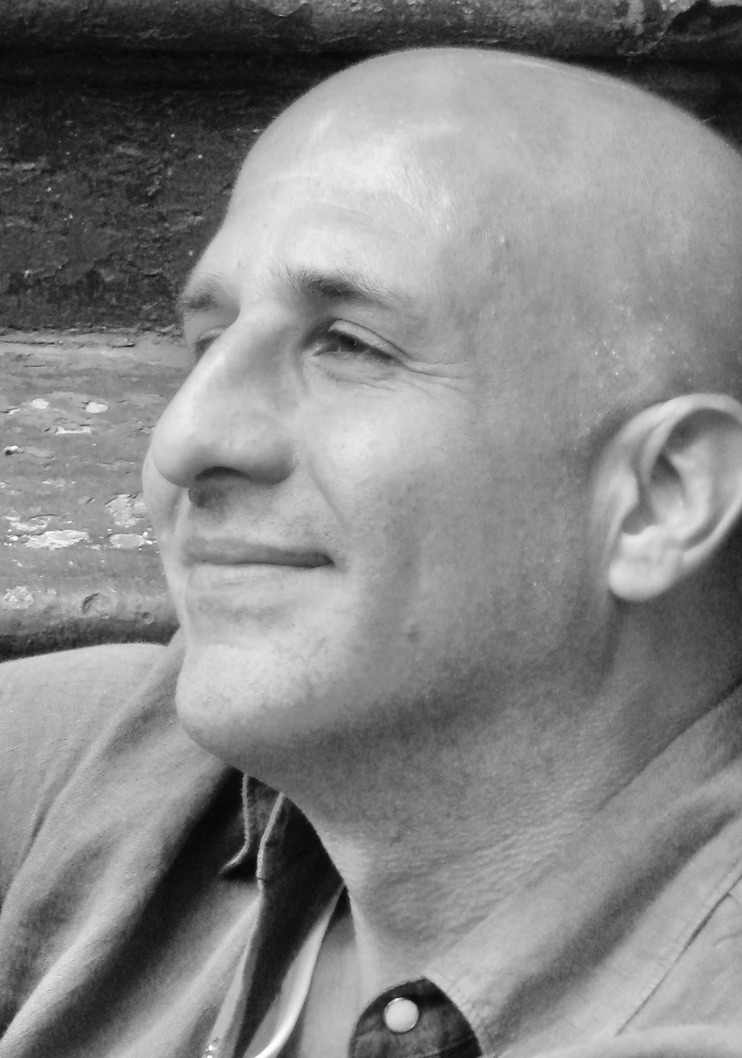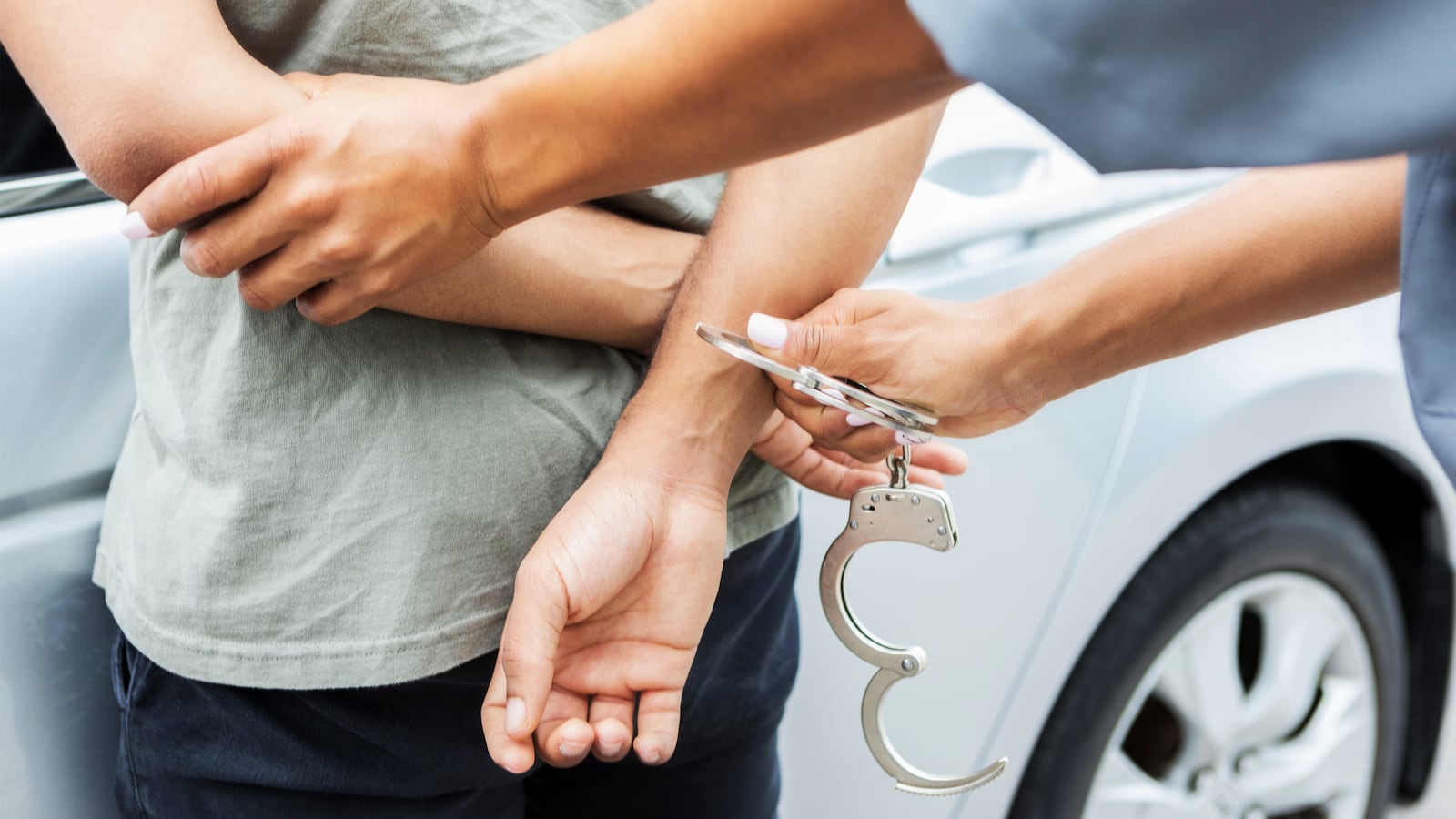When the cuffs came out and my head was slammed onto the hood of my rented car, I knew this was more than a traffic ticket. True, I was doing 40 in a 30 zone or something like that. I’m not sure. The signs changed so quickly and so often, some obscured by trees, it was hard to tell.
The first thing I learned was that handcuffs, if secured with a certain intent, hurt. The next thing I learned is that when this stuff starts to happen, reason gets you nowhere. Halfway into my 45 minutes in the backseat of a state trooper’s car on the road’s shoulder, in the rising heat of a mid-summer North Florida morning, the window cut open less than you might leave it for a dog, my sensible entreaties turned to indignation. “I am not a criminal!” I declared. I was assured that I was. (The charge: “Driving without a valid license.” A thought dawned. I did have those unpaid parking tickets; maybe my license had been suspended.) Gradually, as this lone Florida officer conducted what I later learned was an illegal search of my belongings, I began to grasp the nature of the situation.
He never actually said the word “Jew.” I’m not sure if he meant his spit to land on my face when he leaned in and over-pronounced my last name: Blumen-FELD. I got it when he expressed disdain for “how your people live in New York City” and explained that “our people do things differently.” I couldn’t hear what he and the two other cops who pulled up were saying. I could tell that they were laughing, and that one of them was pointing at me. Was this fun for them? I tried protesting again until he leaned in, giving me a clear view of the medal on his chest—“pistol expert”—while he told me, “Your people like to get really agitated. I wouldn’t do that. Things can get really bad here for someone like you.” After we arrived at the police station, I can’t say if seconds or minutes went by after the double doors shut on either side and it was just me and three cops in awkward silence. I didn’t really think a beat-down would start but no one would have heard. I began to understand how much handcuffs, combined with an inability to cut and run, mess with even an orderly mind.
I was fortunate. I made good use of my phone call. I had someone near enough to bring me the bail money (excessive, I thought). I knew that not only did I have a good job but that also, despite the fact that I was showing up for my very first day, my boss, the publisher of the magazine I was editing, had grown up in Florida. He understood. It helped a bit when he showed me a CNN exposé about Starke, Florida, detailing the town’s abusive speed-trap policies to raise public funds. The piece made no mention of bias. (That CNN link is now disabled, but a National Motorists Association page gives some testimony).
After returning home to Brooklyn, I showed up at the DMV to deal with my driver’s license. The woman behind the counter told me that my license was not suspended, had never been suspended, and that any computer search would have turned up nothing out of the ordinary. My rage was renewed. I fantasized about heading down to Starke, terrorizing this cop as he’d done to me. I thought more calmly about the violence I’m best equipped to inflict, with words. I would write an op-ed piece in a local newspaper, naming this officer and describing what he’d said and done. I would turn phrases that would pin his hands behind his back and make it hurt just like he did. A week had passed. The red lines on my wrists were still visible.
I decided to do nothing, to live my life. I also decided never to lose the foul taste of the vomit that issued from me late that night as I knelt before my boss’s toilet, after I’d caved in to the throbbing pain that had built in the back of my head. As I spat out food and then bile, I realized I’d been poisoned—forced to swallow distillations of hate and fear so pure and strong that my body simply rejected them.
More than 20 years later my mind clings to all that. My heart holds it close precisely because of my good fortune. Had I not had a brother to drive an hour or so with ready cash in hand, had I not had a good job to head off to, had I not had the perspective of a relatively privileged life, a life of white privilege, had those facts not lined up as they did and helped me to keep my mouth shut—then, as that cop had said, things would get bad really fast.
I have a son now. Maybe one day I will tell him this story. In the 25 years since that arrest, I have noticed a rising tide of anti-Semitism (hatred toward an identity I don’t hold close but also can’t deny) in this country, in other countries, on alt-right websites, and in the West Wing. Yet I will never know or grasp what it means to face a constant and overwhelming tide of racism. I will never have to explain to my son that he should expect to be treated as I was treated that day, as a matter of his existence—on the street where he lives or wherever he goes in this country; and that it could quite likely at some point get bad, life-threateningly bad, really fast for him. I will not have to train him to prepare for that danger, to be ready to accept that fear and dehumanization, or that it will be up to him to come to terms with the rage and self-doubt that quite naturally results from such constant scrutiny and oppression without any suitable recourse. I don’t live with that, nor will my son.
I am grateful for those truths, and for that morning in Starke, Florida, when I could feel the hate roll off a man with a badge, and onto me. I am thankful for the compassion that has grown in me as a result. Yet what I felt on that morning, however real, was just something that happened, a blip in my otherwise entitled life, a story I can tell.
If the murder of George Floyd—exceptional for both its cruelty and our easy access to experiencing that cruelty, but also a not uncommon occurrence in the United States—sent my own memory rushing back to me, it is due to no meaningful connection; I merely once tasted a minuscule trace of the kind of hate that can and does kill. Yet I was also forced to think more deeply not of that Florida cop but about our institutions of law enforcement in general, and the origins of its dysfunctions. (Ava DuVernay’s film 13th offers a good primer on the history of how this system was built largely for the capture and subjugation of Black people, and how it has since recycled that essential hate.)
However horrified and enraged I was by the video of the life being sucked from Floyd in Minneapolis and by so many other such tragedies, I can’t fathom what it means to live with the feeling of being effectively hunted—not as something fleeting but as a continual state of affairs. And to know that my country was built on precisely the hate that has produced those feelings, that in some structural sense it relies on that hate. Or to live bound to the overwhelming truth that there has not yet been any real relief from that feeling and that risk (the seven bullets sent into Jacob Blake’s back in Kenosha serve as our latest reminder). These are the facts and the feelings that have led thousands into the streets day after day declaring something that shouldn’t but does need declaration, that Black Lives Matter, a statement that must not invite the counterpoint “all lives matter” because all lives, mine included, maybe especially mine, are not ordinarily threatened and diminished this way, fleeting injustices aside. It took radical acts of inhumanity, videotaped and spread around the world, to coalesce this latest iteration of a demand for humanity that is both basic and as yet unmet. I feel hopeful because so many people won’t accept this situation any longer. I am inspired when basketball players I admire refuse to take the court because enough is enough, and it’s time to stop and reflect. I am fearful because our president has made it clear that, in a city near you, he wants to step up the intimidation and intolerance that perpetuates such ills.
Precisely because I don’t know how it feels to experience oppressive hate from those in power pointed at the very idea of me all the time, I must search myself for signs of my own past complacency and even complicity. There is more than small irony in the fact that the career that leads me to write and publish this essay rests largely on my work as a white writer considering Black culture. (That job I reported to 20 years ago was as editor of a jazz magazine.) Has the racist infrastructure that kicked my ass one long-ago morning simultaneously buttered my bread? I need to ask that question along with these bigger ones, posed by a brilliant Black musician I know: Can my work escape the walls of separation that such racism and hatred places between us? Can it help break them down? The rage and the sensitivity drawn from my brief indignity, sparked anew by far deeper injustices and the swell of outcries against them, embolden me to try. Even so, I can’t know.
I do know how cuffs feel for a couple of hours closed real tight by a man with a badge and a gun who sees me as less than him, and who does what he does with seeming impunity, without any real fear of scrutiny or consequences and in fact with a twisted sense of righteousness. I remember what that vomit tasted like and why I coughed it up. I won’t lose that sensation until things change—for good, right now.






